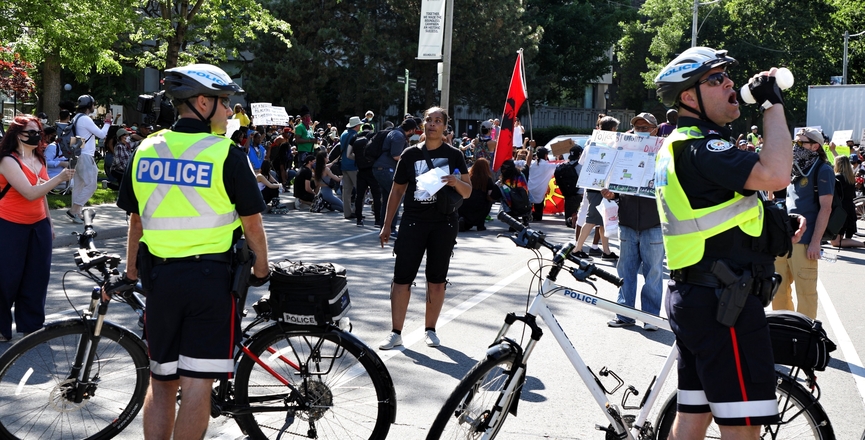In politics, mastering the language of an issue or an opportunity is key to success. Mastering the language of the opportunity that the response to the brutal killing of George Floyd provides will be key — key to ensuring that the hopes for a tipping point in race relations and the struggle for social justice and against racism, in America and Canada, are realized.
The political right is very good at the language game, and is able to seize on well meaning phrases in a way that can make them counter-productive with large segments of the population whose goodwill will be necessary to achieve the needed transformation.
By now it may be obvious that I am expressing a concern about the call for “defunding the police,” a phrase that has already been intentionally misinterpreted and unintentionally misunderstood as a call for the abolition of law enforcement. Nevertheless, there has been impressive support demonstrated on the streets and elsewhere for the idea.
This is because what defunding the police means to most of those calling for it, or supporting the idea, is really a serious and significant re-allocation of tax dollars, not just from the increasing militarization of the police, but from the longstanding and increasing reliance on police to intervene in situations that would be better dealt with by others who are armed with different skills and different training.
This is particularly true, for example, in the cases of those in mental distress, who are too often the casualties of a mismatch between a real need of police intervention and the need for some other kind of intervention — or prevention in the first place.
The political challenge is to make the case for both refunding and newly funding the kind of programs and services that have been starved or rejected in the name of austerity, or ideology, or both, over many years, while police budgets have increased.
I recall when deinstitutionalization was all the rage, and all the warnings that were issued at the time about the need for a good idea to be accompanied by a serious investment in community capacity in order for it to truly succeed. These warnings went largely unheeded, and the result was that police were often left to pick up the slack in the context of a criminalizing and law enforcement paradigm that was inadequate for the task at hand.
This is a reality that police realize themselves. They know, and have complained for years that they are being called upon to do a job that would be better done by others. Instead, they are on the front lines of a social and economic crisis that they did not create, and are being asked to deal with problems that would be better prevented or dealt with in some other way.
Another good example of this would be, as Sandra Hudson, one of the co-founders of Black Lives Matter in Toronto, pointed out in a recent article for the Broadbent Institute, the increasing use and presence of police in schools. Money from the defunding of this kind of policing should be reallocated for more teachers, counselors and other supportive programs.
In the same article, Hudson advocates new approaches and new spending on alternatives to the failed reliance on police to deal with gender-based violence, and the challenges faced by the homeless or unhoused.
The political challenge in the near future has multiple dimensions. The priority is to maintain the outrage about police brutality and racism, and the inexplicable and inexcusable recourse to lethal force in situations that could clearly could have been dealt with otherwise.
The priority is to transform this outrage into continuous momentum for appropriate retraining, policy changes and most importantly, attitudinal change.
Police culture will not be easy to change. The tendency to “other” or stereotype those who they are called upon to police is long-standing, whether it is racial minorities or political protesters. I recall more than one difficult conversation with police representatives about the language employed to describe political protesters, even as these same protesters were often speaking out against the possible privatization of police jobs if certain trade agreements were passed.
Having said this, I believe another challenge should be trying to engage police themselves in the transformation of their roles, so they can get back to policing what truly needs to be policed, instead of burning themselves out dealing with the consequences of society’s refusal to do something about the social and economic determinants of poverty, mental distress, substance use and various other problems that need public attention, and serious public funding, like truly affordable housing.
Perhaps not all police will be interested in such engagement, but I like to think that, if the case is properly worded and properly argued, there are police who could be important allies of those who would seize the transformative potential of the moment, whether it’s called defunding the police, or, preferably, as I recently saw it described, reimagining public safety.
Bill Blaikie, former MP and MLA, writes on Canadian politics, political parties and Parliament.
Image: Mitchel Raphael



